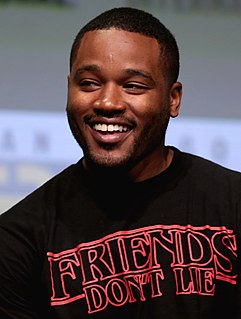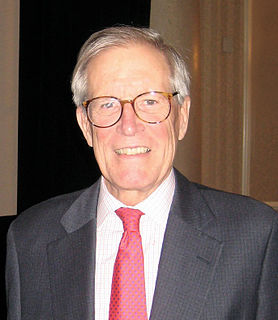A Quote by Ryan Coogler
Black-on-black crime is a massive human rights issue that's going on in America.
Related Quotes
In America, you can segregate the people, but the problems will travel. From slavery to equal rights, from state suppression of dissent to crime, drugs and unemployment, I can't think of a supposedly Black issue that hasn't wasted the original Black target group and then spread like measles to outlying white experience.
Black community, I think as a whole America is dealing with the issue of homophobia. We got to be really honest about whether we believe in civil rights for all people or not. As Black people we need to remember the moment that we say it's okay to disenfranchise one segment of society, we're opening the door to move backward on ourselves.
African-Americans have always viewed the protection of black lives as a civil rights issue, whether the threat comes from police officers or street criminals. Far from ignoring the issue of crime by blacks against other blacks, African-American officials and their constituents have been consumed by it.
The civil rights movement didn't deal with the issue of political disenfranchisement in the Northern cities. It didn't deal with the issues that were happening in places like Detroit, where there was a deep process of deindustrialization going on. So you have this response of angry young people, with a war going on in Vietnam, a poverty program that was insufficient, and police brutality. All these things gave rise to the black power movement. The black power movement was not a separation from the civil rights movement, but a continuation of this whole process of democratization.
Environmentalism is not an upper-income issue, it's not a white issue, it's not a black issue, it's not a South or a North or an East or a West issue. It's an issue that all of us have a stake in. And if I can do anything to make sure that not just my daughter but every child in America has green pastures to run in and clean air to breathe and clean water to swim in, then that is something I'm going to work my hardest to make happen.
Black History is enjoying the life of our ancestors who paved the way for every African-American. No matter what color you are, the history of Blacks affected everyone; that's why we should cherish and respect Black history. Black history changed America and is continuing to change and shape our country. Black history is about everyone coming together to better themselves and America. Black history is being comfortable in your own skin no matter what color you are. Black history makes me proud of where I came from and where I am going in life.
Eventually [black men] are arrested, whether they've committed any serious crime or not, and branded criminals or felons for life. Upon release, they're ushered into a parallel social universe in which the civil and human rights supposedly won during the Civil Rights Movement no longer apply to them.
For black America needs a politics whose first mission isn't the reinforcement of the idea of black America; and a discourse of race that isn't centrally concerned with preserving the idea of race and racial unanimity. We need something we don't yet have: a way of speaking about black poverty that doesn't falsify the reality of black advancement; a way of speaking about black advancement that doesn't distort the enduring realities of black poverty.
I, however, like black. It is a color that makes me comfortable and the color with which I have the most experience. In the darkest darkness, all is black. In the deepest hole, all is black. In the terror of my Addicted mind, all is black. In the empty periods of my lost memory, all is black. I like black, goddammit, and I am going to give it its due.






































